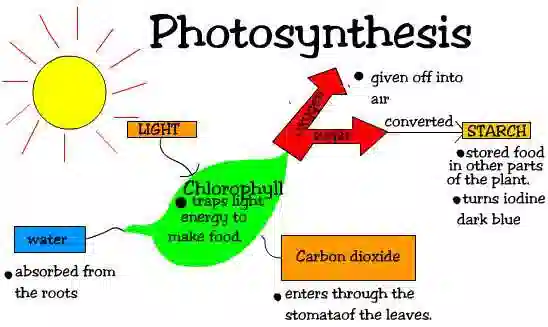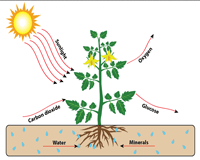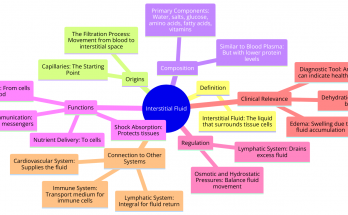Where do Plants get each of the Raw Materials required for Photosynthesis ?
Answer – Photosynthesis is the process by which plants convert light energy into chemical energy, which is stored in the form of glucose.
Plants get each of the Raw Materials required for Photosynthesis through a combination of gas exchange via the stomata, absorption via the roots and uptake from the soil.

Three main raw materials are required for photosynthesis
- Carbon dioxide
- Water
- Other materials such as minerals.
Carbon dioxide
Carbon dioxide is taken up by plants through stomata, which are tiny pores on the surface of leaves. Land plants take up CO₂ from the atmosphere, while aquatic plants take up dissolved CO₂ from water. Carbon dioxide is also released into the atmosphere during cellular respiration of organisms.
Water
Water is absorbed by the roots through the process of osmosis and transported via the xylem vessels to the leaves containing the photosynthetic cells. In the presence of sunlight, the water molecules split by photolysis and form hydrogen and oxygen. The hydrogen ions are used to break down carbon dioxide, while the oxygen is produced as a by-product.
Other materials
In addition to carbon dioxide and water, plants also need other materials such as minerals, including nitrogen, phosphorus, iron and magnesium, which are taken up from the soil. Nitrogen is an essential element needed for the synthesis of proteins and other compounds. It can be taken up in the form of inorganic nitrates (or nitrites) or as organic compounds produced from atmospheric nitrogen by symbiotic bacteria such as Rhizobium.
Also Check – Steps of Photosynthesis
Also Check – How are Water and Minerals Transported in Plants ?
Also Check – What are the Adaptations of leaf for Photosynthesis


5 Comments on “Where do Plants get each of the Raw Materials required for Photosynthesis”